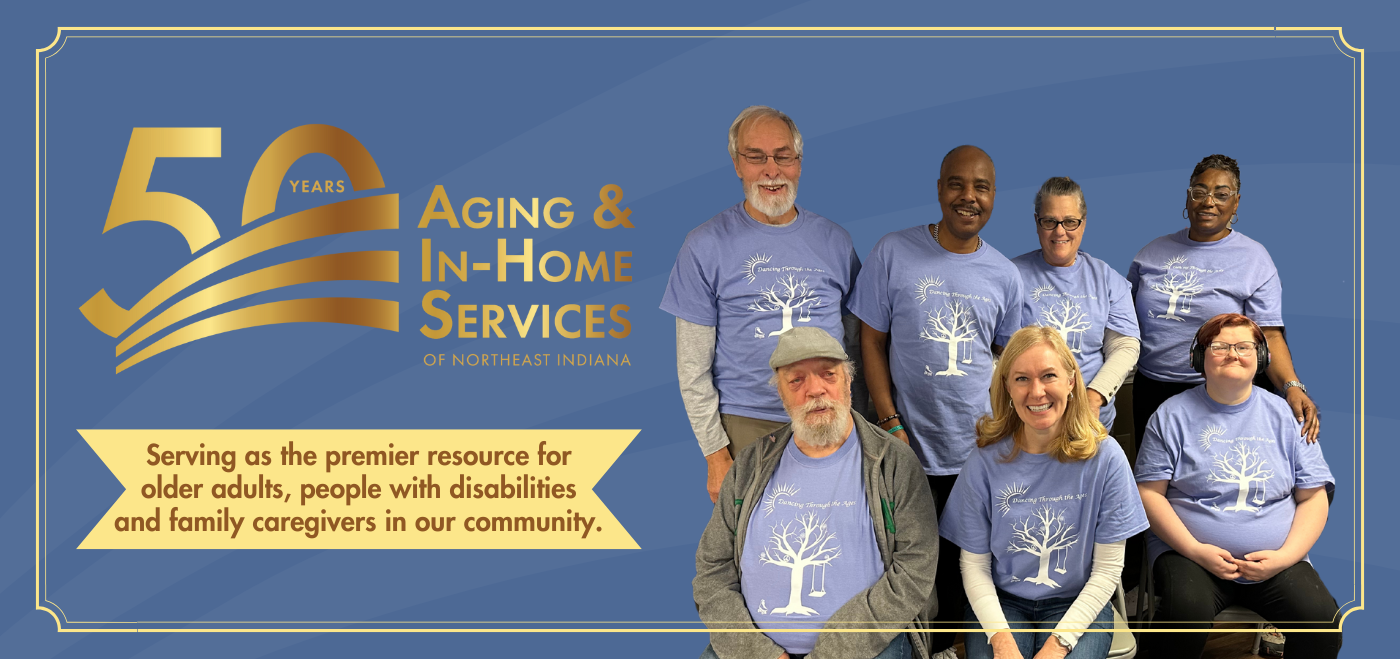Aging & In-Home Services of Northeast Indiana Receives Alzheimer’s Association Grant to Improve Respite Care for People Living with Dementia and their Caregivers

Aging & In-Home Services of Northeast Indiana (AIHS) has been awarded $125,000 from the Alzheimer’s Association Center for Dementia Respite Innovation (CDRI) to enhance the quality and availability of dementia-specific respite care for people living with dementia and their caregivers in northeast Indiana.
AIHS is one of only 41 recipients chosen to receive grant funding from more than 200 applicants across the country. The funds will be used to provide person-centered respite services to people living with dementia (PLWD) and their caregivers at select County Councils on Aging including memory enhancing activities, socialization and education. Monthly caregiver navigation services will be available. The program will launch in Steuben and Whitley counties, two of the top three rural counties identified as having the greatest need in August 2025. Caregivers interested in learning more about dementia-specific respite care can contact Project Manager Denise Hughes, RN, BSN, at 260-600-0844 or Dhughes@agingihs.org.
“AIHS gratefully acknowledges the recognition to be included in this program,” said President & CEO Beth Evans, MHA. “For the past 4 years AIHS has implemented an Alzheimer’s and Dementia Programs Initiative (ADPI) grant serving PLWD and their caregivers which identified 40% of participants resided in rural areas. We look forward to this expansion and enhancement of our rural respite program to meet that identified need.”
In conjunction with the grant, AIHS will also receive online training and ongoing technical assistance from the CDRI to ensure respite services are dementia-capable and to support sustainability. The CDRI will also collect data and evaluate the impact of these innovative projects from all grant recipients to inform public policy.
“We congratulate Aging & In-Home Services of Northeast Indiana on its grant and look forward to working with its team to help enhance respite care services for local dementia caregivers,” said Sam Fazio, Ph.D., vice president care and support programs and research, Alzheimer’s Association. “We intend to gain insights from each respite program we fund, ultimately developing a catalog of programs, tools and resources that will be easily accessible to interested caregivers and care providers.”
The Alzheimer’s Association created the CDRI in 2024 after receiving a $25 million grant from the Administration for Community Living (ACL), a division of the U.S. Department of Health and Human Services. Over the next four years, the CDRI will provide $25 million in grant funding to local respite providers and organizations to enhance the quality and availability of respite care nationwide. Visit alz.org/cdri to see the full list of this year’s grant recipients.
There are more than 11 million unpaid caregivers in the U.S. providing care for people living with dementia and 219,000 across Indiana alone. Many struggle with stress, exhaustion and burnout, yet access to respite care remains limited, especially throughout rural counties. This program aims to bridge that gap by offering caregivers flexible, compassionate care solutions so they can take a break.
This project is supported by the Administration for Community Living (ACL), U.S. Department of Health and Human Services (HHS) as part of a financial assistance award totaling $13,261,685 with 75 percent funded by ACL/HHS and $3,285,728 with 25 percent funded by non-government source(s). The contents are those of the author(s) and do not necessarily represent the official views of, nor an endorsement, by ACL/HHS, or the U.S. Government.
Aging & In-Home Services of Northeast Indiana, Inc. (AIHS), a federal and state designated Area Agency on Aging (AAA) and Aging & Disability Resource Center (ADRC), is a non-profit community-based organization with a mission to promote dignity, independence, and advocacy for older adults, persons with disabilities and their caregivers. AIHS has gained national recognition as a community leader transforming the traditional social services model into an integrated care model which bridges health care, behavioral health and community services to better serve vulnerable, at-risk populations.
